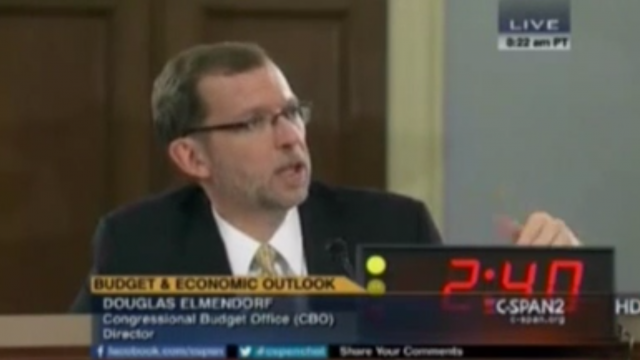CBO Chief: Cost Of Obamacare Will Be Born By Workers In The Form Of Lower Wages

Yesterday the CBO produced a report indicating that Obamacare would cost an equivalent of 2.3 million jobs by 2021. The Obama administration very quickly spun that number, claiming that it meant 2.3 million would be freed of having to work all those hours.
Because a nation with $17 trillion in national debt to pay off, not to mention trillions more in unfunded liabilities represented by various entitlement programs, needs fewer people in the work force paying taxes, right?
Anyway, what the CBO really said was that Obamacare was going to remove the incentive to work. From page 117 of the CBO’s Labor Market Effects of the Affordable Care Act: “CBO estimates that the ACA will reduce the total number of hours worked, on net, by about 1.5 percent to 2.0 percent during the period from 2017 to 2024, almost entirely because workers will choose to supply less labor—given the new taxes and other incentives they will face and the financial benefits some will receive.”
Whether you want to see that as the working class being liberated from the drudgery of employment or the sort of economic blow this country can hardly afford, the end result is fewer self-sufficient, taxpaying Americans. There’s no spinning that as a positive.
Now CBO Director Douglas Elmendorf is telling Congress that Obamacare will have another cost too: Reduced wages as employers pass along the increased costs of providing insurance to workers (video above):
“We expect as other analysts believe that over time costs that employers bare for their employees end up being borne by the employee in the form of lower wages.”
This really isn’t anything new. Employer benefits like health insurance has always come at the cost of wages. When employers calculate in the cost of employees to their bottom line, it is the total cost of employment (wages, benefits, taxes, etc.) they consider. Raising the cost of providing health benefits is going to put downward pressure on wages.
Most employers won’t cut pay, but you can bet that the raises will be smaller and slower in coming in the future for a lot of Americans.




